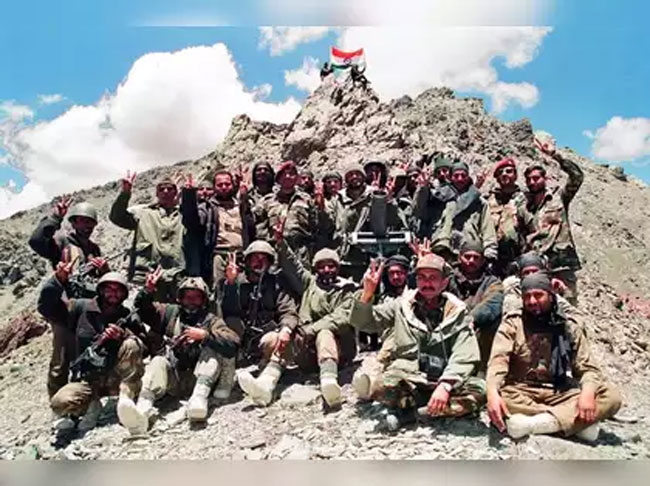Kargil Vijay Diwas, observed on July 26th each year, marks a pivotal and proud moment in Indian history. This day commemorates the victory of the Indian Armed Forces in the Kargil War against Pakistan in 1999, a conflict that showcased the valor, resilience, and strategic acumen of India’s military personnel.
The Background of the Kargil War
The Kargil War, also known as the Kargil Conflict, took place between May and July 1999 in the Kargil district of Jammu and Kashmir. The conflict was initiated by the infiltration of Pakistani soldiers and militants into Indian territory, occupying strategic peaks and positions along the Line of Control (LoC). The infiltrators aimed to cut off the link between Kashmir and Ladakh and force India to withdraw from the Siachen Glacier, thereby altering the status quo in the region.
India’s Response and Military Strategy
The Indian Armed Forces launched Operation Vijay to clear the infiltrators from the occupied positions. The operation was a massive military undertaking involving the Army, Air Force, and paramilitary forces. Indian soldiers faced numerous challenges, including difficult terrain, harsh weather conditions, and the strategic advantage held by the infiltrators occupying higher ground.
Despite these adversities, the Indian forces exhibited unparalleled bravery and tactical expertise. The use of Bofors artillery guns, precise airstrikes by the Indian Air Force, and coordinated ground assaults played a crucial role in neutralizing enemy positions. The determination and courage of the soldiers were instrumental in reclaiming key peaks such as Tiger Hill, Tololing, and Point 4875.
The Role of Intelligence and Diplomacy
Intelligence played a critical role in the Kargil War. The timely gathering and analysis of information helped in identifying enemy positions and planning effective counterattacks. Additionally, diplomatic efforts by India on the global stage ensured international support and condemnation of Pakistan’s actions. The United States, among other nations, played a significant role in urging Pakistan to withdraw its forces and respect the sanctity of the LoC.
The Sacrifice and Valor of Indian Soldiers
The Kargil War witnessed the supreme sacrifice of many Indian soldiers who laid down their lives for the nation. Their bravery and dedication are remembered and honored on Kargil Vijay Diwas. Stories of heroism, such as those of Captain Vikram Batra, Lieutenant Manoj Kumar Pandey, and Grenadier Yogendra Singh Yadav, among others, have become legendary. Their acts of valor and selflessness continue to inspire and evoke a deep sense of patriotism among Indians.
The Aftermath and Legacy
The successful culmination of Operation Vijay on July 26, 1999, led to the withdrawal of Pakistani forces and the restoration of the LoC. Kargil Vijay Diwas is not only a day to celebrate the victory but also to reflect on the lessons learned and the importance of vigilance and preparedness in safeguarding the nation’s sovereignty.
The Kargil War had significant implications for India’s defense policy and military strategy. It highlighted the need for improved intelligence, better coordination among armed forces, and enhanced infrastructure in border areas. The war also underscored the importance of maintaining a strong and capable military to deter and respond to any aggression.
Honoring the Heroes
On Kargil Vijay Diwas, ceremonies and events are held across the country to pay tribute to the brave soldiers. The President, Prime Minister, and other dignitaries lay wreaths at the Amar Jawan Jyoti at India Gate in New Delhi. Memorials and commemorations are also held in Dras, Kargil, and other parts of the country, where the stories of heroism are recounted, and the sacrifices of the soldiers are remembered.
Conclusion
Kargil Vijay Diwas is a reminder of the indomitable spirit of the Indian Armed Forces and the nation’s commitment to protecting its sovereignty and integrity. It is a day to honor the brave soldiers who fought with unparalleled courage and made the ultimate sacrifice for their motherland. As India continues to strive for peace and stability, the legacy of Kargil serves as a beacon of inspiration and a testament to the strength and resilience of the nation.




